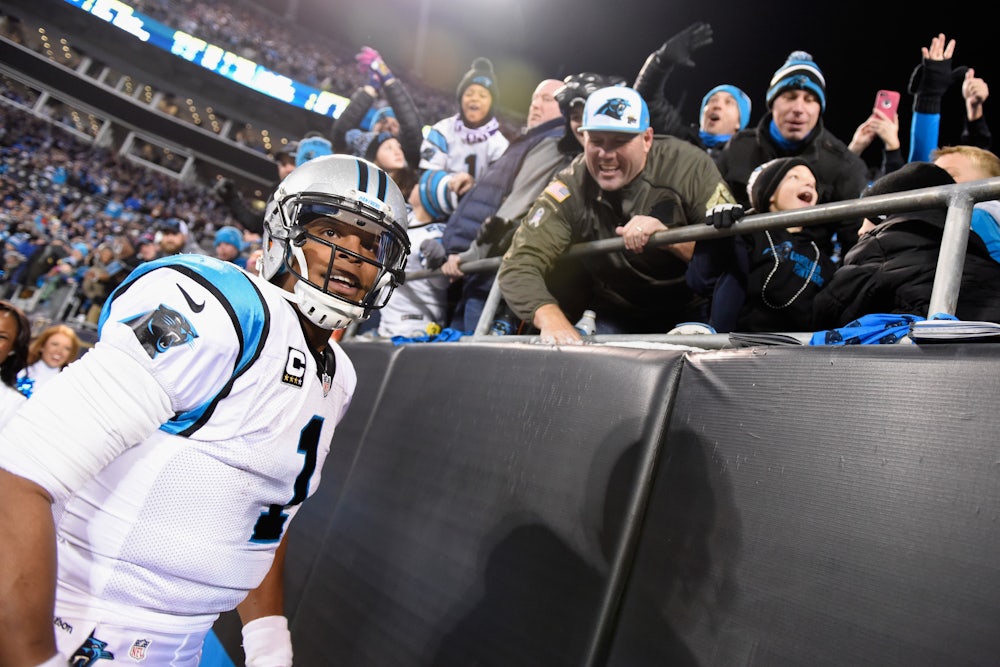It was a terrible year to be an Eagles fan. Among the preseason favorites to make the Super Bowl, Philly managed to find new ways to disappoint each week. I watched every game with my nine-year-old son, Isaac, and every loss hurt a little more than the one before. After a day game, I’d remain in a dark mood for the rest of the day. Sometimes I’d go grocery shopping, not because we needed food but because I wasn’t yet ready to interact with other people.
At Isaac’s bedtime, I’d try to feign nonchalance. Lying down next to him in the darkness of his bedroom—my head resting on his Eagles pillow—I would tell him that he shouldn’t take the loss so hard, and tell him again and again that football is “just a game.” But Isaac wasn’t the least bit upset. Before long it became clear that I wasn’t trying to convince my son that football was “just a game,” I was consoling myself. And I wasn’t repeating the message as a way of remembering it, but because I found the message increasingly hard to believe.
That football is just a game is factually true, of course, as it is for any other team sport. But what we mean when we say “just a game”—that football isn’t important in life, that it’s ridiculous to get worked up over an athletic competition among millionaires—is less obviously true. And yet, this mantra is repeated every Sunday in bars and living rooms across America, even among diehard fans, sometimes even among the coaches and athletes themselves.
How is football at once everything and nothing: a national obsession, a focal point of the lives of tens of millions of Americans, and yet still so trivial that we’re expected to bounce back from a loss the moment we turn off the TV?
For non-fans, the answer is obvious: Football is indeed trivial, and a cultural scourge of the nation. For fans, it’s a bit more complicated. “Just a game” is an analgesic we swallow to ease the pain of losing, but doing so perpetuates the notion that football truly is trivial—and once you accept that argument, it’s hard not to feel like a complete idiot for caring about it so much.
I’m not so far gone that I think what happens on the field is anywhere near as important as the countless crises of life and death that happen every day. And I would never compare my passion for my favorite teams to the far more profound feelings I have for my family and close friends. But it’s hard for me to see why we belittle the intense emotional experiences we have as fans, when in other contexts we regard these same emotions—unwavering loyalty, unbridled enthusiasm—as among the most important and profound aspects of being human.
Is telling a despondent football fan that “it’s just a game” really so different from saying “it’s just art” to someone weeping over a great novel or in awe before a magnificent painting? Is it really so different than saying “it’s just a relationship” to someone at the tail end of a difficult break up? Maybe. Or maybe football is not just a game. Maybe a fan’s bond with a team, however one-directional, is deeply rooted in the psyche and should be respected and valued in the same way we respect and value other powerful emotional bonds. Maybe there is no such thing as “just” in matters of the heart.
The evidence for the power of the bond between fan and football team can be found not only in millions of living rooms across the country on Sundays but also in scientific literature, which reveals that serious fans experience hormonal surges as they watch games. The intensity of the bond, according to one theory, can be traced back to a primitive time when being a fan meant rooting for the warriors who were fighting for the survival of your small tribe. That sounds plausible enough. But for the fan, the origins of the emotions are beside the point. What matters is the feeling; the feeling of being intensely alive in a way that few other experiences in modern life can offer; the feeling of sitting on your couch and watching the game as though your own fate were tied to the outcome of every play.
It’s not that these feelings, in and of themselves, are a justification for the sport. My passion for football makes me no less worried about the dangers it poses to the players, or, for that matter, the dangers some of the players pose to their wives and girlfriends. Nor do I deny that many fans, like the ones who attack the fans of opposing teams or riot after a loss, take things way too far. “It’s just a game” is regularly trotted out as a rejoinder to such extreme fans, but it doesn’t make the phrase any truer. It is possible to get carried away even if football is much more than a game. If anything, out-of-control fans are one more reminder that, whatever is taking place in our brains when we root for our teams, it’s real and powerful and can’t be squelched by a hackneyed phrase.
Am I saying all of this because I want to be taken more seriously the next time I say that I can’t go out on the night of a big game? Obviously. But it’s more than that. I no longer want to feel stupid for caring about football so much. There is enough suffering simply in being a sports fan in Philadelphia today. We shouldn’t also have to be ashamed of our suffering.
